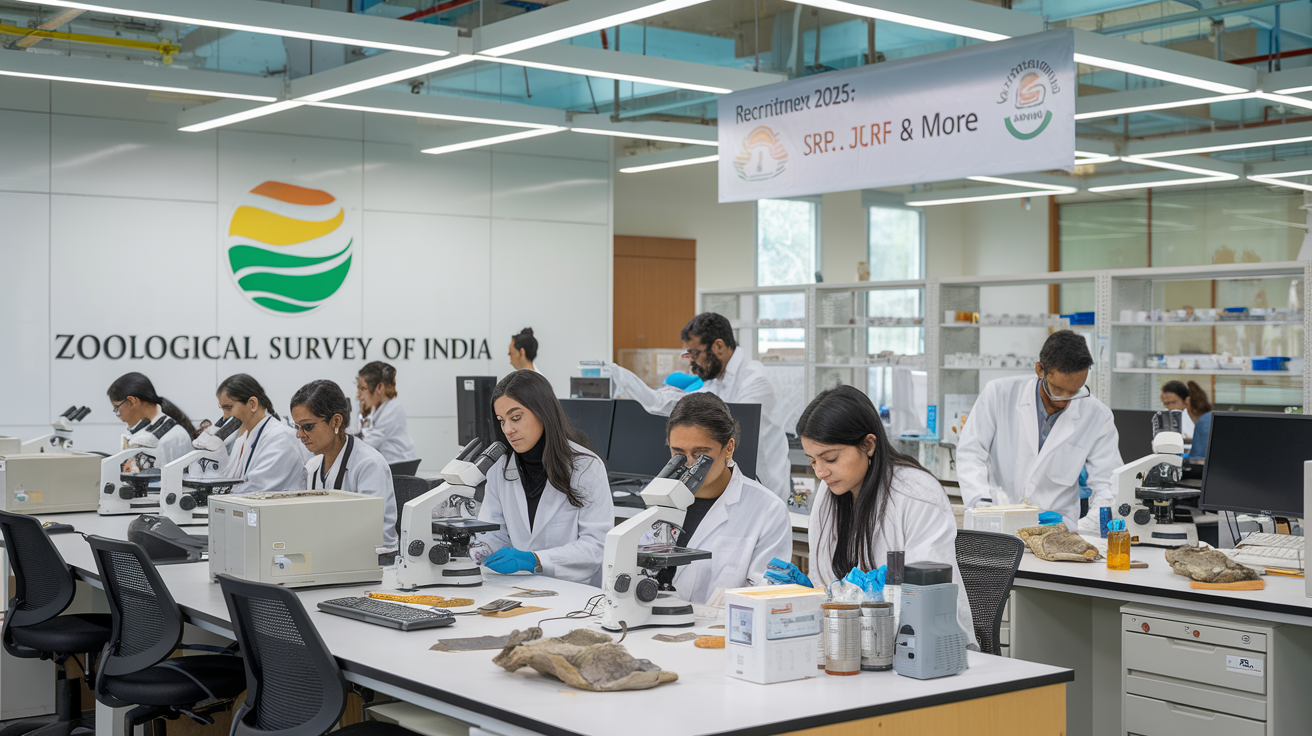Are you ready to ace your RRB Group D Science exam? 🚂📚 Look no further! Our comprehensive set of multiple-choice questions (MCQs) is here to supercharge your preparation and boost your confidence.
Covering a wide range of scientific topics from chemistry, biology, and physics to environmental science, these expert-crafted practice questions will challenge your knowledge and sharpen your skills. Whether you’re curious about the chemical components in beauty treatments, the intricacies of human anatomy, or the mysteries of astrophysics, we’ve got you covered. 🧪🧬🔬
Get ready to dive into a world of scientific exploration as we guide you through Chemistry MCQs, Biology MCQs, and Physics MCQs tailored specifically for RRB Group D aspirants. We’ll also explain the question format and provide an answer key to help you track your progress. So, buckle up and prepare to transform your exam preparation with our engaging and informative practice questions!
Chemistry MCQs for RRB Group D
A. Chemical components in beauty treatments
Beauty treatments often involve various chemical components. For instance, sodium is commonly used in street lamps, but it also plays a role in certain cosmetic formulations. Mica, an industrial mineral, is frequently found in makeup products, particularly in eyeshadows and highlighters, due to its light-reflecting properties.
B. Types of fertilizers
Fertilizers are crucial in agriculture, and their composition often involves chemical elements. While specific fertilizer types aren’t mentioned in the reference content, it’s worth noting that chemicals like nitrogen, phosphorus, and potassium are common components in many fertilizers.
C. pH levels of substances
pH levels are essential in chemistry and play a significant role in various applications. For example:
| Substance | pH Level | Characteristic |
|---|---|---|
| Vinegar | Acidic | Contains acetic acid |
| Water | Neutral | pH of 7 |
| Ammonia | Basic | Found in urine, causes pungent odor |
Understanding pH levels is crucial for many industrial and household applications, including beauty treatments and cleaning products.
D. Properties of cement and brass
While the reference content doesn’t specifically mention cement and brass, we can discuss related chemical properties:
- Cement: A key component in construction, cement undergoes chemical reactions when mixed with water.
- Brass: An alloy typically composed of copper and zinc, known for its durability and corrosion resistance.
Chemical properties of materials are vital in various industries, including:
- Construction (cement)
- Manufacturing (brass)
- Electronics (copper in electrical components)
- Automotive (anti-knocking agents in car engines)
Now that we have covered the essential Chemistry MCQs for RRB Group D, including chemical components in beauty treatments, types of fertilizers, pH levels of substances, and properties of materials like cement and brass, we’ll move on to explore Biology MCQs for RRB Group D in the next section. This will further enhance your preparation for the Railway Recruitment Board exam.
Biology MCQs for RRB Group D
Now that we’ve covered Chemistry MCQs for RRB Group D, let’s delve into the Biology section of the exam. This crucial component of the RRB Group D Science practice focuses on two key areas: human anatomy and environmental science.
Human anatomy questions
Human anatomy is a fundamental aspect of biology that RRB Group D candidates must master. These questions test your understanding of the human body’s structure and functions. Here are some key topics to focus on:
- Organ systems (circulatory, respiratory, digestive, etc.)
- Skeletal and muscular structures
- Nervous system components
- Endocrine glands and hormones
To effectively prepare for this section, consider the following study approach:
- Create detailed diagrams of major body systems
- Memorize key terminology related to human anatomy
- Practice identifying organs and their functions
- Review common diseases associated with each body system
Environmental science topics
Environmental science is another critical area in the RRB Group D Biology MCQs. This subject covers a wide range of topics related to the natural world and human interaction with it. Key areas to focus on include:
| Topic | Examples |
|---|---|
| Ecosystems | Food chains, biodiversity, habitat types |
| Pollution | Air, water, and soil pollution sources and effects |
| Conservation | Wildlife protection, sustainable resource management |
| Climate change | Causes, impacts, and mitigation strategies |
To excel in this section, consider these study tips:
- Stay updated on current environmental issues
- Learn about India’s specific environmental challenges and policies
- Understand the basics of ecology and ecosystem dynamics
- Familiarize yourself with key environmental treaties and agreements
By thoroughly preparing for both human anatomy and environmental science topics, you’ll be well-equipped to tackle the Biology MCQs in the RRB Group D exam. Remember to practice with a variety of question formats and difficulty levels to enhance your problem-solving skills.
With this solid foundation in Biology, we’ll next explore the Physics MCQs for RRB Group D, which will cover essential concepts in physical sciences crucial for the exam.
Physics MCQs for RRB Group D
Now that we’ve covered the Biology MCQs for RRB Group D, let’s delve into the Physics questions that are crucial for your exam preparation.
Heat transfer concepts
Heat transfer is a fundamental topic in physics, and understanding its principles is essential for the RRB Group D exam. Here are some key concepts to focus on:
- Conduction
- Convection
- Radiation
These methods of heat transfer play a significant role in various real-world applications, including railway systems. For instance, the cooling systems in train engines rely on efficient heat transfer mechanisms.
Sound pollution questions
Sound pollution is an increasingly important environmental concern, especially in the context of railway operations. The RRB Group D exam may include questions related to:
- Decibel levels
- Noise reduction techniques
- Effects of sound pollution on human health
Understanding these concepts will not only help you in the exam but also in your future career with the Indian Railways, where managing noise levels is a crucial aspect of operations.
Astrophysics inquiries
While astrophysics might seem distant from railway operations, basic concepts in this field are often included in general physics questions. Some topics you might encounter include:
- Planetary motion
- Basic celestial mechanics
- Concepts of time and space
| Concept | Relevance to RRB Group D |
|---|---|
| Heat transfer | Understanding train engine cooling systems |
| Sound pollution | Managing noise levels in railway operations |
| Astrophysics | General physics knowledge and problem-solving skills |
Remember, the RRB Group D exam often includes questions from previous papers, so practicing with these topics can significantly boost your preparation. Some key areas to focus on include:
- Frequency modulation
- Heat radiation velocity
- Work function
- Units of capacitance
- Torque
- Scalar vs. vector quantities
These topics not only cover the physics concepts mentioned earlier but also extend to other fundamental areas of physics that are crucial for the exam.
With this comprehensive coverage of Physics MCQs for RRB Group D, you’re now better equipped to tackle this section of the exam. Next, we’ll explore the Question Format and Answer Key, which will further enhance your understanding of how to approach these physics questions effectively.
Question Format and Answer Key
Now that we’ve covered the Physics MCQs for RRB Group D, let’s explore the question format and answer key structure used in these exams.
A. Multiple-choice structure with four options
The RRB Group D exam follows a computer-based test format, utilizing objective-type multiple-choice questions (MCQs). This structure is designed to assess candidates’ knowledge efficiently across various subjects, including science topics like chemistry, biology, and physics. Here’s a breakdown of the MCQ format:
- Each question is accompanied by four answer options
- Only one option is correct
- Candidates must select the most appropriate answer
- Questions cover a range of difficulty levels
The multiple-choice format offers several advantages for both exam takers and evaluators:
| Advantages for Candidates | Advantages for Evaluators |
|---|---|
| Clear and concise questions | Objective assessment |
| Opportunity to eliminate incorrect options | Efficient grading process |
| Time-efficient answering | Standardized scoring |
| Reduced writing fatigue | Easy comparison of results |
B. Correct answers provided at the end
To facilitate effective exam preparation, the RRB Group D mock tests and practice materials typically include an answer key at the end. This feature allows candidates to:
- Self-assess their performance
- Identify areas for improvement
- Understand correct solutions to challenging questions
- Track progress over time
The answer key is an essential tool for candidates to:
- Verify their responses immediately after completing the test
- Learn from mistakes and reinforce correct answers
- Gain insights into the exam’s scoring pattern
- Develop strategies for time management and question selection
By utilizing mock tests with answer keys, candidates can familiarize themselves with the exam structure, reduce pre-exam anxiety, and improve their overall performance.
With this understanding of the question format and answer key, we’ll next explore the expert-crafted practice questions designed to enhance your preparation for the RRB Group D exam.
Expert-Crafted Practice Questions
Now that we’ve covered the question format and answer key, let’s delve into the expert-crafted practice questions designed specifically for the RRB Group D Science exam.
Diverse scientific topics covered
The RRB Group D Science practice MCQs encompass a wide range of scientific disciplines, ensuring comprehensive coverage of the exam syllabus. These questions are meticulously crafted to test candidates’ knowledge across various fields, including:
- Chemistry
- Biology
- Physics
- Environmental Science
This diverse selection of topics aligns perfectly with the General Science section of the RRB Group D Recruitment exam, which comprises 25 questions out of the total 100. The practice questions cover key areas such as:
| Topic | Examples |
|---|---|
| Chemistry | Chemical components in beauty treatments, types of fertilizers, pH levels |
| Biology | Human anatomy |
| Physics | Heat transfer, astrophysics |
| Environmental Science | Sound pollution |
By practicing these expert-crafted MCQs, candidates can:
- Familiarize themselves with the exam pattern
- Improve their problem-solving skills
- Identify areas that require further study
- Enhance their time management abilities
Prepared by experienced content writer Pradip Chakraborty
The practice questions for the RRB Group D Science exam have been meticulously prepared by Pradip Chakraborty, an experienced content writer specializing in educational materials. His expertise ensures that the questions:
- Accurately reflect the exam’s difficulty level
- Cover all relevant topics within the syllabus
- Provide a realistic representation of the actual exam questions
Pradip Chakraborty’s experience in crafting educational content is particularly valuable for candidates preparing for the RRB Group D exam. His questions are designed to:
- Challenge candidates’ understanding of scientific concepts
- Encourage critical thinking and analysis
- Help candidates apply their knowledge to practical scenarios
By utilizing these expert-crafted practice questions, candidates can significantly enhance their preparation for the General Science section of the RRB Group D Recruitment exam, ultimately improving their chances of success in this competitive recruitment process.






